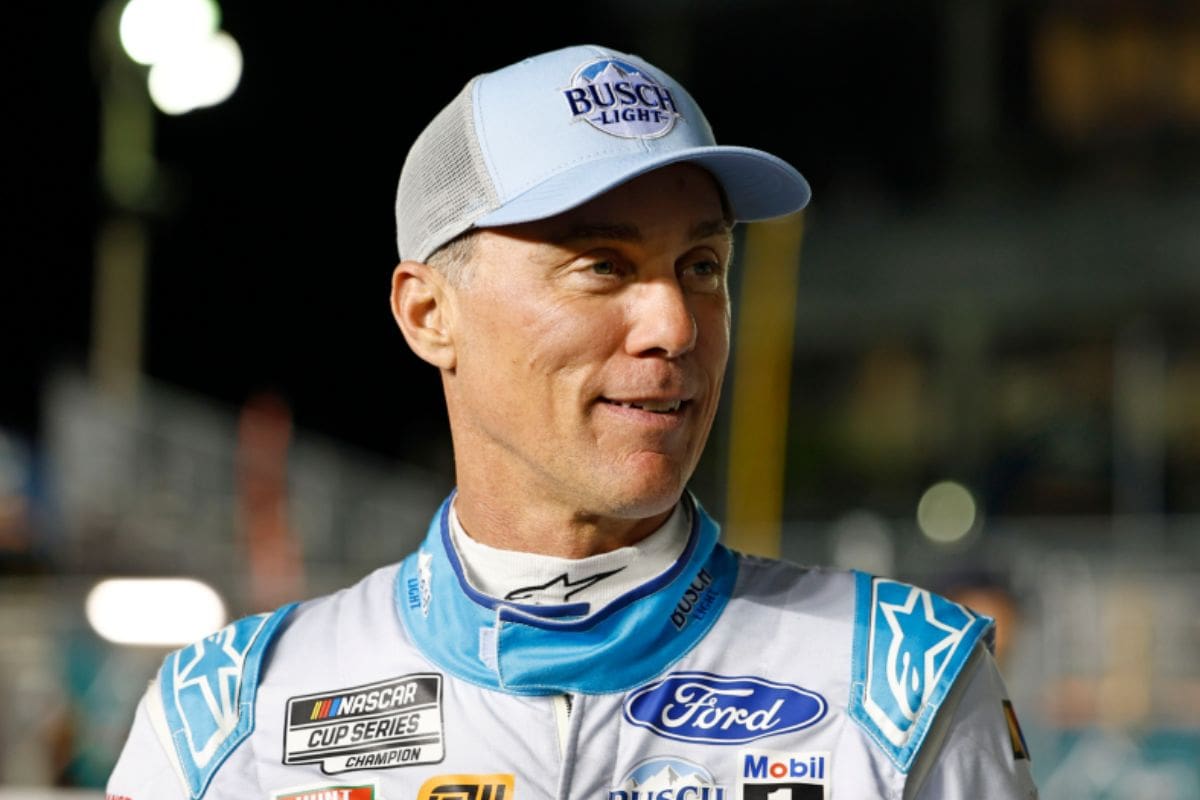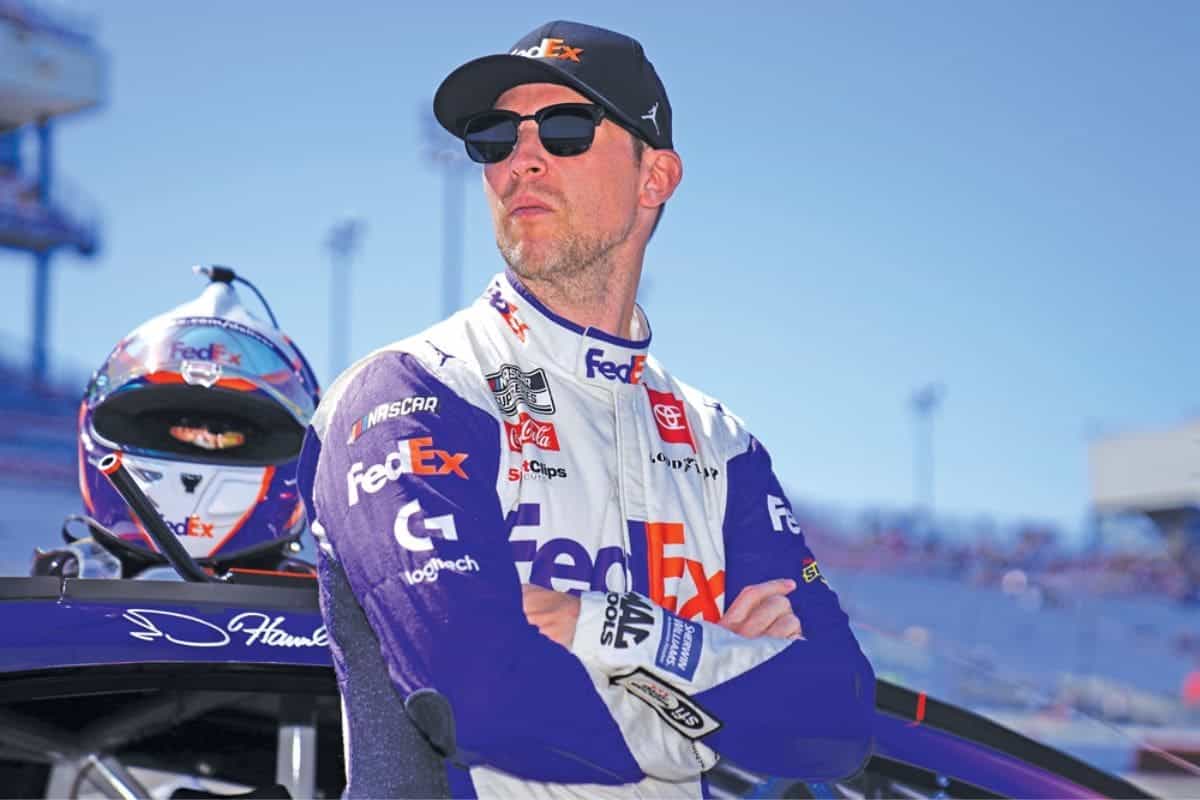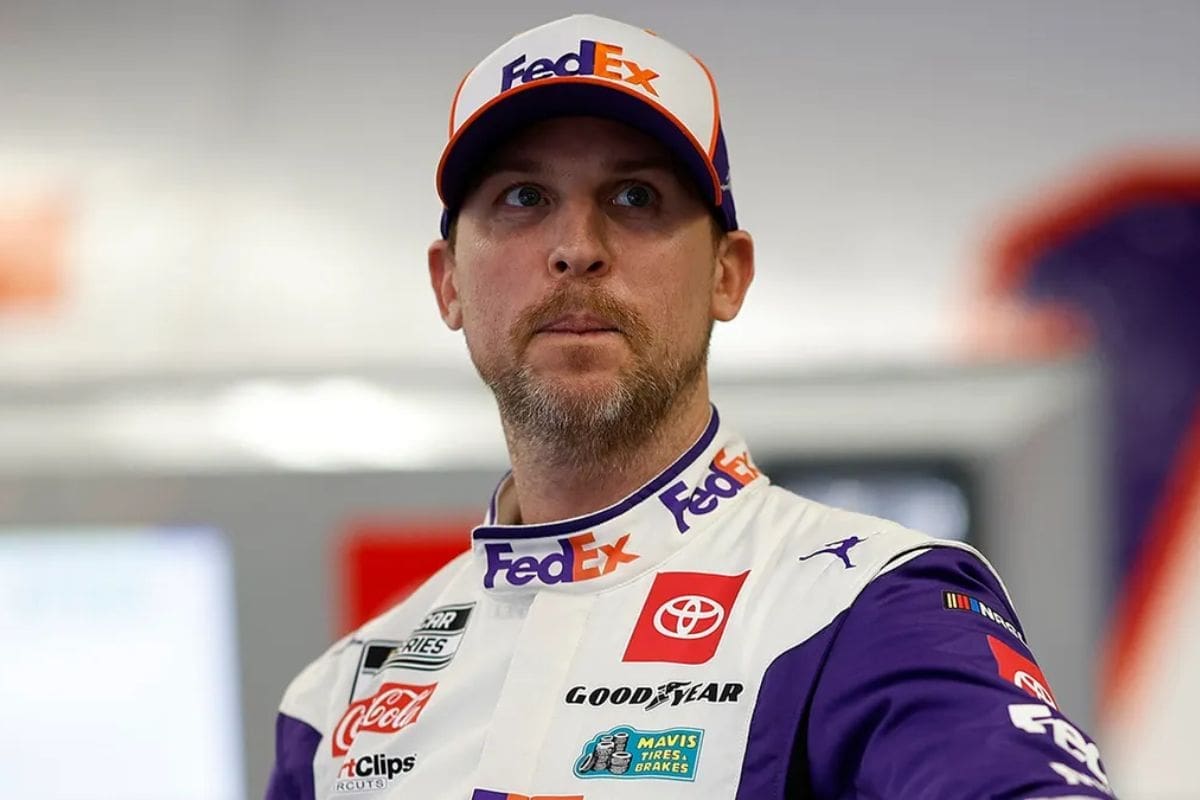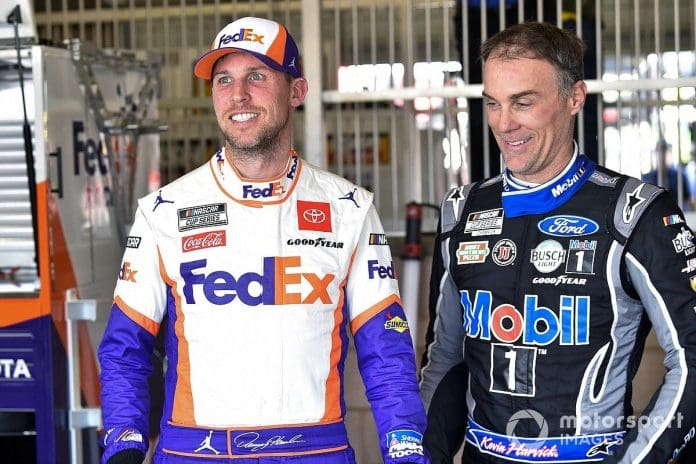Kevin Harvick Criticizes Hamlin’s Restart: Kevin Harvick’s condemnation of Denny Hamlin’s restart strategy in Toyota Owners 400 at Richmond exposes fundamental issues within NASCAR about fairness and the consistency of rule enforcement. Aligning with Martin Truex Jr., Harvick’s critique points towards the potential advantages that some competitors may gain through unusual strategies, questioning the interpretative flexibility of NASCAR’s regulations. Amidst this dispute, NASCAR’s non-penalization of Hamlin has intensified the debate over the application and interpretation of rules, highlighting a critical moment for the reassessment of oversight mechanisms. This discourse suggests an underlying complexity in achieving a balance between competitive edge and sportsmanship, inviting further examination into NASCAR’s regulatory practices for ensuring a level playing field.
Key Takeaways
- Kevin Harvick criticized Denny Hamlin’s restart tactic at Richmond, highlighting concerns over fairness.
- Harvick’s critique aligns with Martin Truex Jr., questioning the legality of Hamlin’s move.
- The controversy calls for a reassessment of NASCAR’s rules and enforcement consistency.
- Harvick emphasizes the need for fairness in competitive practices within NASCAR.
- The debate brings to light the importance of transparent, uniformly enforced rules.
Denny Hamlin’s Controversial Win at Richmond Sparks NASCAR Community Outrage
Denny Hamlin’s triumph at the 400-lap race in Richmond has sparked a heated debate within the NASCAR community, mainly because of the controversial nature of his final restart tactic that clinched his victory. Despite being in the lead for only a minimal portion of the race, it was Hamlin’s astute, albeit contentious, move during the last restart that ultimately secured his victory, overshadowing his teammate Martin Truex Jr. This incident has not only raised questions about the fairness of Hamlin’s strategy but also about the consistency of NASCAR’s rules enforcement.
Analyzing the situation objectively, it’s essential to understand the intricate balance between skill, strategy, and sportsmanship in NASCAR racing. The final restart, a critical phase in any race, is a moment where drivers must leverage every aspect of their experience and knowledge of the racing dynamics. Hamlin’s decision to execute a highly aggressive tactic reflects a deep understanding of these dynamics. However, the controversy stems from perceptions of whether this move adhered to the spirit of fair competition, as set forth by NASCAR’s guidelines.
This incident has opened Pandora’s box, in regards to the interpretation of rules and the latitude drivers have in exploiting them to their advantage. It highlights the need for NASCAR to potentially reassess its rulebook to guarantee clarity and consistency in its enforcement. Moreover, it highlights the old debate in competitive sports between innovation in strategy and the boundaries of fair play.

Kevin Harvick Takes Martin Truex Jr.’s Side in Restart Controversy
In a recent development, retired NASCAR driver Kevin Harvick has publicly criticized Denny Hamlin’s controversial restart at Richmond, taking a stance that aligns with Martin Truex Jr., and raising concerns over the importance of the tactic that led to Hamlin’s victory. Harvick’s critique brings a seasoned perspective to the discussion, emphasizing the significance of the restart phase in a race’s outcome and questioning the fairness of the advantages gained through such actions.
Harvick’s analysis is not merely a matter of opinion but rather a contribution to a broader discourse on the integrity of competitive practices within NASCAR. By siding with Martin Truex Jr., Harvick emphasizes a shared concern among drivers regarding the consistency and application of rules governing restarts. This aspect is vital for ensuring a level playing field, where victories are attributed to skill, strategy, and teamwork rather than opportunistic interpretation of the rules.
Furthermore, Harvick’s critique serves as a call for a reevaluation of the oversight mechanisms in place. It suggests that the scrutiny of restarts should be intensified to prevent any actions that could unjustly alter the course of the race. The involvement of seasoned professionals like Harvick in the debate not only highlights the call for fairness but also adds a layer of technical insight that can aid in the refinement of rules and their enforcement.
In essence, Kevin Harvick’s stance is an embodiment of the ongoing quest for sporting integrity within NASCAR.
“When we first showed the replay at the end of the race, everything happened, and it was hard to tell…Definitely looked like he rolled before the line. Well when you go back today, he definitely went way before the line and took off.”( Harwick )
“So Denny took off early, got away with it, and won the race.”( Harwick )
Denny Hamlin Justifies Controversial Restart Move as NASCAR’s Decision Faces Scrutiny
Responding to the backlash, Hamlin stood firm on his restart strategy at Richmond, asserting that it aligned with the regulations and highlighting the debate over NASCAR’s rule enforcement. His defense raises critical questions about the interpretation and application of the rules governing restarts, a subject that has long been a point of debate within the NASCAR community. Hamlin’s insistence on the legitimacy of his actions emphasizes a broader issue: the ambiguity in how rules are understood and enforced, which can lead to significant disparities in competitive advantage among teams.
Hamlin’s position serves as a focal point in the ongoing discussion about fairness and sportsmanship in NASCAR. By claiming that his restart strategy was within the bounds of the existing rules, Hamlin challenges the racing community to examine the clarity and consistency of NASCAR’s rulebook. His steadfastness also highlights the complexity of balancing strategic ingenuity with the integrity of the sport. This incident not only brings to light the individual racer’s interpretation of the rules but also questions the mechanisms of oversight and enforcement in place.
As this debate unfolds, it becomes evident that mastering the intricacies of NASCAR’s rules is as much a part of the competition as the physical act of racing itself.

NASCAR’s Response to Richmond Restart Controversy Sparks Further Debate
NASCAR’s official stance on the contentious Richmond restart has sparked further discussions among stakeholders, highlighting the complexities of rule enforcement in pressure racing scenarios. The decision not to penalize Denny Hamlin for what many perceived as an early restart has become a focal point of contention, revealing a divide between fans, drivers, and officials over the interpretation and application of racing rules. NASCAR officials, in defense of their decision, pointed to the inherent challenges of making split-second judgments in the closing laps of a race, emphasizing the discretionary nature of their authority in such instances.
This response, however, has not quelled the debate but rather intensified it, highlighting the broader issue of consistency and transparency in NASCAR’s rule enforcement. Critics argue that the absence of a penalty in this instance sets a concerning precedent and calls into question the consistency of NASCAR’s regulatory framework. They contend that without clear and consistently applied rules, the integrity of the sport is at risk, potentially undermining the competitive fairness that is foundational to racing.
Conversely, NASCAR’s defense shows a pragmatic approach to rule enforcement, suggesting that not every situation can be neatly categorized or anticipated by the rule book. This perspective advocates for a certain degree of flexibility and judgment on the part of officials, recognizing the unique challenges posed by speed, competitive racing environments.
As this debate continues, it becomes clear that at the heart of the controversy is a fundamental tension between the desire for absolute fairness through strict rule enforcement and the practical realities of governing a dynamic, fast-paced sport like NASCAR.

News in Brief
The dispute surrounding Denny Hamlin’s restart at Richmond has sparked significant debate within the NASCAR community, highlighting the complexities of race regulations and their enforcement.
Kevin Harvick’s criticism and the subsequent defense by Hamlin emphasize the subjective nature of rules interpretation and the potential for perceived unfair advantages.
NASCAR’s response to the incident has only furthered the discussion, suggesting a need for clearer guidelines and more consistent enforcement to diminish future controversies and guarantee a level playing field for all competitors.
Our Reader’s Queries
Q: What does Kevin Harvick drive?
A: Harvick drives the No. 4 Ford Mustang for Stewart–Haas Racing. He clinched the Cup Series championship in 2014 and secured the Xfinity Series titles in 2001 and 2006, along with a victory at the 2007 Daytona 500. Harvick hails from Bakersfield, California, U.S
Q: How much did Kevin Harvick make last year?
A: Kevin Harvick, who has retired from NASCAR racing, commanded an estimated salary of around $10.9 million while driving for Stewart-Haas Racing. He ranked among the highest-paid drivers on the grid during the 2023 season.
Q: What business does Kevin Harvick own?
A: KHI Management, founded by NASCAR Cup Series champion Kevin Harvick, offers clients comprehensive services spanning career management, media relations, licensing, and philanthropy. With a focus on sports and entertainment platforms, it provides opportunities to amplify brands across various channels.
Also Read: Kevin Harvick Applauds NASCAR’s Rain Strategy: Game-Changer!


